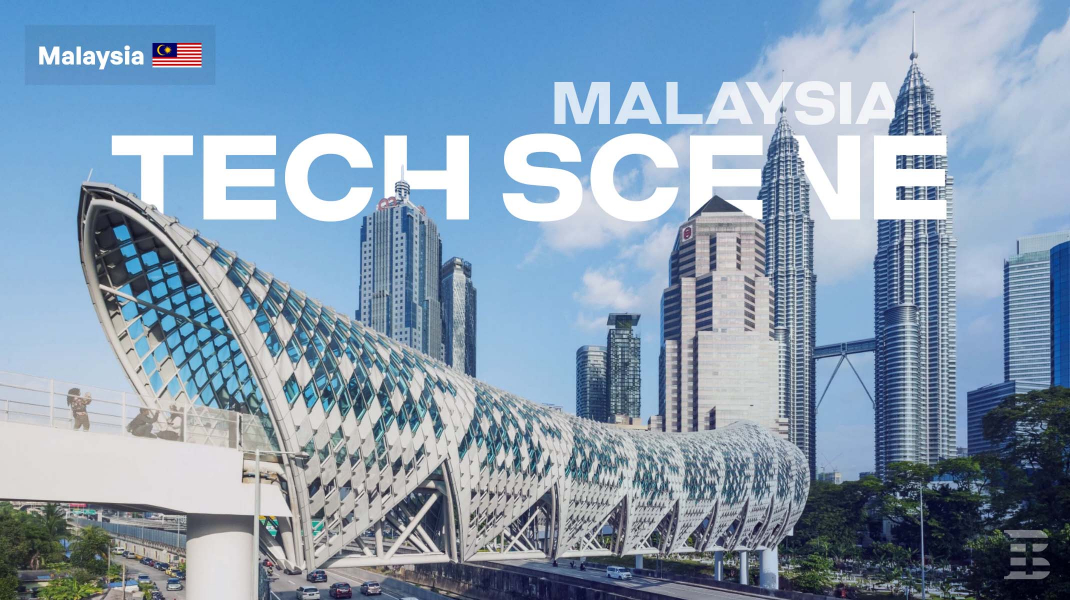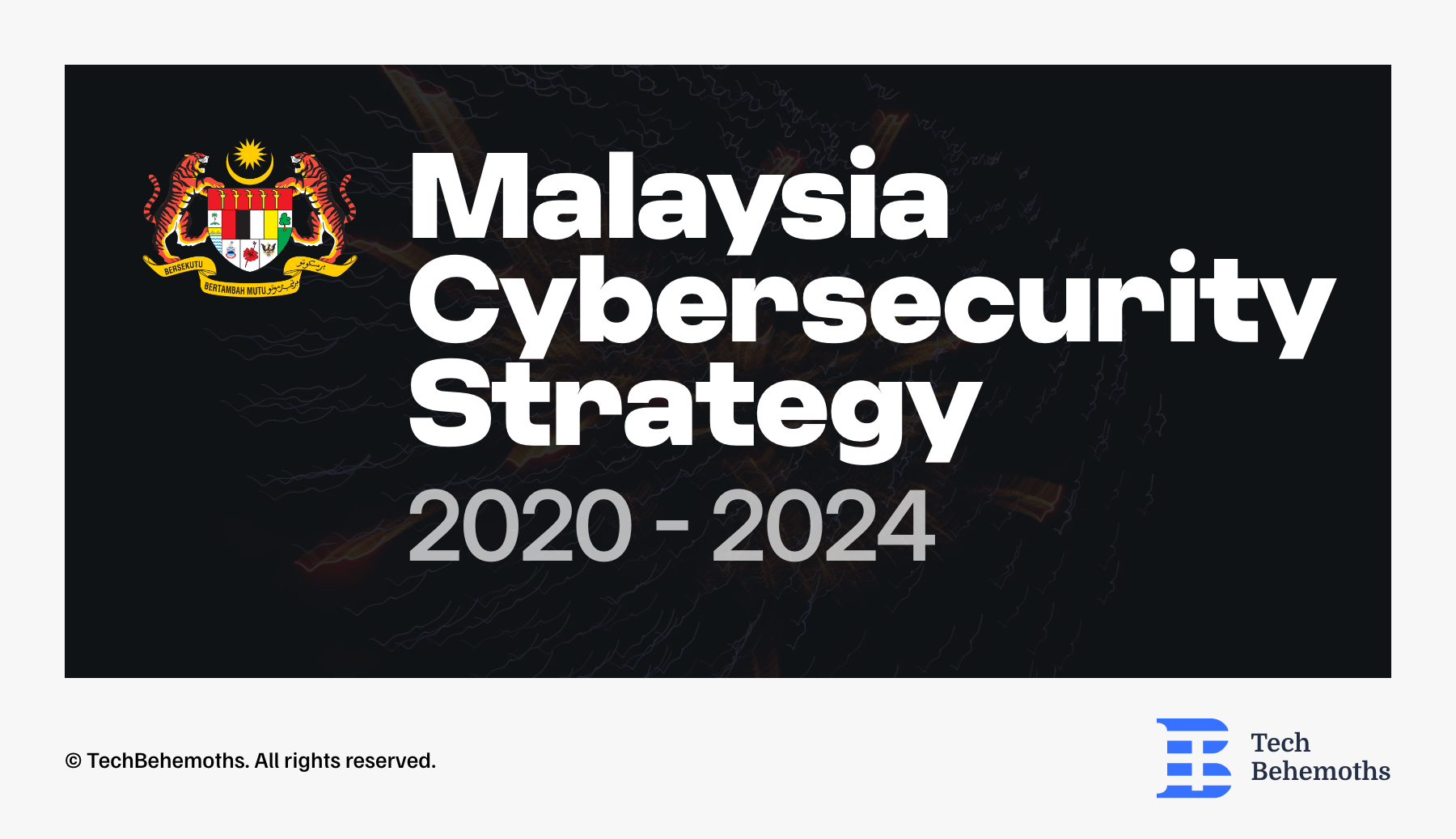Malaysia's Tech Scene Overview & Trends

Malaysia has a that has evolved into a major factor of economic growth, fueled by government initiatives, foreign investments, and a skilled workforce. Malaysia is emerging as a local powerhouse in semiconductor manufacturing, artificial intelligence (AI), cloud computing, and cybersecurity.
Innovation hubs like Cyberjaya are the foundation for Malaysia's technological growth. These tech centers foster technological advancements and are appealing to global companies, further reinforcing Malaysia’s position as a favored location for tech-powered growth.
As the in the world, Malaysia is progressing within ASEAN, especially in areas like data centers, digital assets, and AI. This article describes the factors for the Malaysian tech environment to thrive, its future projections, and challenges that this nation is currently facing.

Overview of Malaysia’s Tech Ecosystem
Malaysia has a rapidly evolving technological ecosystem. This growth is the result of a strategic plan organized by the country’s government. Government Policies and Digital Transformation
Malaysia's government focused on digital transformation through initiatives like the and the National AI Roadmap. These two policies have as their goal to position the country as a leading digital center by 2030. With its focus on framework development, AI adoption, and digital abilities enhancement. The budget for 2025 strengthens this commitment, allocating to support startups and digital advancements.
There are other key initiatives from the government, such as:
- The National Industry 4WRD prioritizes support for the digital transformation of the manufacturing sector. It encourages automation and smart technologies.
- The aims to boost e-commerce development and digital trade, increasing Malaysia’s global rivalry.
- sustains digital investment and innovation across fields like smart cities, fintech, and health tech.
These policies are having a big influence on the tech ecosystem, leading to financial growth and digital innovations in Malaysia.
Digital Transformation Effort
This nation is making progress in digital transition, focusing on smart city initiatives, AI adoption, and blockchain infrastructure.
AI and smart nation development
Malaysia is actively working to become a , with a strong accent on talent development and digital framework. The Malaysian government supports AI-driven smart city policies in states like . This is made to enhance efficiency and life quality.
Digital investments and blockchain innovation
Malaysia has attracted in approved digital funds under the initiative of Malaysia Digital (MD). This created numerous opportunities and thousands of high-value jobs. In addition, the nation launched an initiative, the , to combine fragmented digital environments and drive blockchain adoption.
AI strategy and policy development
The is guiding efforts to create a human-centered AI strategy. It is ensuring ethical governance, talent development, and security. Malaysia is incorporating AI into several domains, including traffic administration, financial services, and digital identity verification. This is also made to boost innovation and efficiency.
Malaysia’s digital transition is powered by AI adoption, city initiatives, and a blockchain framework, placing it as a regional tech leader.
Emerging Tech Hubs and Ecosystem Growth
Malaysia has developed several key tech hubs that serve as innovation centers for startups and multinational firms:
- Cyberjaya, also known as Malaysia's “Silicon Valley”, is home to numerous tech companies, co-working spaces, and research institutions. It is an important location for AI development and digital services.
- , Malaysia’s capital city, is an important center for fintech, enterprise software startups, and e-commerce. Over the past three years, it raised funds worth RM220 billion or $47 billion in ecosystem value.
- , this city is known for its focus and strong demand for the electronics and semiconductor industry. Penang is developing into a hub for deep tech and modern manufacturing startups.
Startup Ecosystem and Innovation Platforms
Malaysia’s startup environment is thriving, being supported by several programs and funding mechanisms. This includes MYStartup, Malaysia Startup Ecosystem Roadmap (SUPER), Cradle Fund, and MaGIC.
- is a platform backed by the government that connects founders, tech talent, and investors. It also provides mentorship and funding possibilities.
- , Malaysia implemented a long-term plan to position the nation among the top 20 global startup ecosystems by 2030. This strategy prioritizes funding, market expansion, and talent development.
- and are examples of initiatives that offer early-stage funding and support for startups, helping them scale and become global rivals.

These initiatives are a basis for Malaysia to develop its tech sector and be home to new innovations.
Growth Opportunities in Malaysia’s Tech Sector
The country plays an important role in the global semiconductor supply chain, commanding for semiconductor packaging, assembly, and testing. Having major centers in Penang and Kulim. Several factors are boosting this expansion:
- Policies from the government, like Malaysia's are helping in attracting foreign direct investment (FDI). In this way, companies see Malaysia as a business-friendly environment beneficial for tech companies.
- is an industry that is slowly shifting toward green technology. Incorporating energy-efficient processes reduces costs, which makes this transition follow the , leading to Malaysia staying a competitive player in the semiconductor industry.
- Supply chain diversification, due to geopolitical tensions, companies are moving semiconductor production to the Association of Southeast Asian Nations (ASEAN). This is reducing reliance on one region's manufacturing, strengthening supply chains, and minimizing disruptions.
- Outsourced Semiconductor Assembly and Test (OSAT) is a type of service in which Malaysia has a strong influence. Its experience in chip packaging and testing makes it indispensable to semiconductor manufacturers. Thanks to this, Malaysia has important contracts in the global semiconductor industry, accelerating economic growth and job creation.
These factors place Malaysia as a competitive player in the semiconductor space, with an expected growth in the coming years.
Artificial Intelligence (AI) & Automation
Malaysia’s AI and automation sector is facing a transition powered by strategic policies, industry investments, and increasing adoption across several sectors. The nation is positioning itself as a local AI hub, leveraging its skilled labor force, digital framework, and robust foreign collaborations.
AI adoption in Malaysia’s manufacturing and finance sectors
Malaysia is rapidly integrating AI in industries like manufacturing and finance to increase efficiency, security, and productivity.
Artificial intelligence is improving Malaysia’s manufacturing field by implementing several measures. These include:
- Predictive maintenance.
- Real-time production monitoring.
- Quality control systems.
Strategic incentives like the New Industrial Master Plan (NIMP) 2030 have as a goal to place this country as a global industrial center. By increasing AI adoption in Industry 4.0 technologies, such as robotics and IoT. AI-driven automation helps manufacturers , for example:
- Job scheduling.
- Inventory management
- Warehouse efficiency
All these key factors are helping reduce downtime and raise overall production.
Finance: AI-powered security and efficiency
AI plays a crucial role in fraud detection, customer service automation, and risk assessment in the Malaysian financial sector. Banks and financial facilities are leveraging AI to help ease their work, for instance:
- Analyze transaction patterns.
- Detect anomalies.
- Prevent cyber threats.
In addition, these institutions use AI-driven chatbots and virtual assistants to enhance customer services, provide support in real time, and offer personalized financial recommendations.
The adoption of artificial intelligence is expected to accelerate and drive economic growth.
Cybersecurity and Cloud Computing in Malaysia
The cybersecurity and cloud computing sectors in Malaysia are expanding rapidly.
To protect sensitive information and critical frameworks, Malaysia is prioritizing cybersecurity. This nation follows the , which underlines the key measures to increase cyber resilience. In addition to this, the strategy works on improving many aspects, like:
- Regulatory compliance
- Threat detection
- Incident response frameworks

Businesses are funding AI-driven security solutions to fight cyber threats, while government agencies enforce stricter data protection regulations.
Cloud computing: regional expansion and investments
Global tech giants like are attracted to Malaysia because it is emerging as a regional cloud computing hub. The country’s data center industry has had record growth in the last few years, with expectations to become the . Adopting cloud services allows businesses to scale operations, improve efficiency, and increase digital services.
Market outlook
plays a crucial role in making Malaysia an ideal hub for multinational cloud providers seeking to serve the broader Asia-Pacific region.
In Malaysia, the data center market is projected to rise significantly, with investments coming from major players like Microsoft, AWS, and Google. The government's goal of renewable energy and efficient urban planning continues to strengthen the position of the nation as a competitive and sustainable technological center.
Because of the like STACK Infrastructure, EdgeConnX, and Epoch Digital joining established players such as AWS, Equinicx, and Telekom Malaysia, the market is expected to grow. The will add about 3GW of power capacity, bringing the total an equal of 4GW. Regions like Johor and Selangor in Malaysia are equal to 400MW of the total capacity. Regional growth is an important factor; for example, Johor, a city in Malaysia, is emerging as a data center hotspot with 40-50 projects and 20 already approved. However, issues remain, for example, the utilities, prompting the exploration of desalination and greywater solutions.
What is the future market outlook?
The Malaysian data centers market is projected to reach , growing at a CAGR of 22,38%. With help from government backing and active foreign investments, Malaysia is well-positioned to become a leading digital nest in Southeast Asia.
Challenges and Future Predictions in Malaysia’s Tech Scene
Despite the admirable success in the tech ecosystem, Malaysia faces some obstacles. These include:
- due to the demand for skilled tech professionals are surpassing supply, especially in AI, cybersecurity, and semiconductor industries.
- , securing long-term investment, remain a challenge for many emerging companies, despite Malaysia having a thriving startup environment.
- Global economic uncertainties, political tensions, and trade policies, specifically like the US and China, could impact Malaysia’s tech exports.
- , while this country has made progress in the digital transition, some businesses, for example, SMEs, struggle to adopt new technologies.
With increasing foreign investments and a growing digital economy, Malaysia can become a leading technology hub in ASEAN.
Conclusion
The technology sector in Malaysia is experiencing growth, driven by supportive government policies, foreign investments, and a talented workforce. By prioritizing areas like artificial intelligence, semiconductor manufacturing, cloud computing, and cybersecurity, Malaysia is positioning itself as a regional leader in digital innovation.
Major tech hubs like Cyberjaya, Kuala Lumpur, and Penang, based in this country, further reinforce its role as a beneficial environment for startups and multinational firms. While challenges like talent demand and framework gaps remain, its robust infrastructure and global collaboration position Malaysia as a rising force in Southeast Asia and beyond.